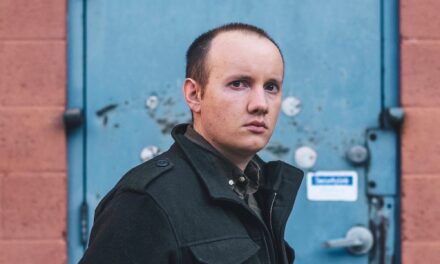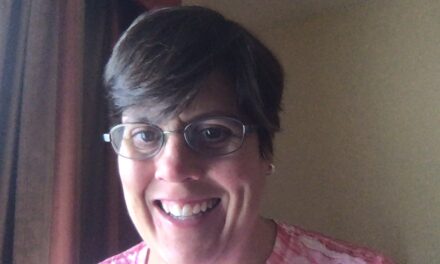Assistant Editor Taylor Byas: In her flash essay “Checking,” Sarah Beth Childers illustrates how life and death often blend seamlessly into one another. With a dying Granddad sleeping downstairs and a newborn Lydia sleeping upstairs, the speaker of this piece hovers in the purgatory between, constantly checking to make sure both are still breathing. And when Granddad passes on, the speaker finds peace in her daughter’s heartbeat, her gentle breathing at night, the warmth of it filling the void that loss has left behind.
To hear Sarah Beth read her essay, click below:
Checking
For two years, I crept into my husband’s grandfather’s bedroom to check if he was dead. Robert and I lived with Granddad, a ninety-something World War II pilot and retired petroleum engineer who offered a napkin to everyone who sat at his table. When he lay on top of his made bed, his thin sun-marked body seemed quieter than his quilt.
Granddad had medical conditions that caused his breathing to stall and his heart to pause its beating. For a few seconds, Robert told me, he would look legally dead if he were hooked up to a vital-signs monitor. “Someday he’ll be sleeping, and his breathing and heartbeat will stop and not come back.”
In Granddad’s last month I checked on him downstairs and my newborn upstairs. I felt like my heart stopped every time I stuck my hand into Lydia’s bassinet and touched her swaddled chest. My heart resumed thumping when I felt a rise and fall or heard a squeak.
A pediatrician had warned us about intermittent breathing, about how Lydia might not breathe for ten seconds—an eternity—especially while sleeping. “It’ll go away after a couple of months,” she said. With my hand on Lydia’s chest, my breath held as I waited for her next movement, I wondered if a vital-signs monitor would tell me I was dead.
My fear about my daughter is universal but also an inheritance: my grandmother’s first baby girl died in her sleep. She stuck her hand into the crib, then rode in a cab to the hospital on her own birthday, the thirteen-pound bundle in her arms.
In the end, Granddad died in his bed, but he didn’t surprise us. His daughter stretched out alongside him so she could feel his final breaths, his final heartbeats. After Granddad passed, Robert lay down by his cooling body, absorbing the last of his heat.
A police officer’s wife told me her husband checks bodies after murders, suicides, lonely deaths in stale apartments, holds a mirror under noses to check for fogging breath. I decided against using mirrors when I checked on Lydia, but I placed my index finger under her tiny nose, waiting for the next burst of air.
At sixteen weeks, Lydia has dropped her intermittent breathing, and she and I have taken to co-sleeping. We miss each other too badly when she lies in her bassinet a foot away. She aims her milk-smelling face at my breast, and I cuddle-curl my arms and legs around her, making my body a crib railing, an electric fence.
I remember Granddad’s last days, when Robert said, “Lydia’s getting better. Grandad’s getting worse.” It wasn’t the same when we checked on our upstairs baby and our downstairs old man.
That thought comforts me at night as I press Lydia’s soft body to mine, feeling her heartbeat, her breath.
Sarah Beth Childers is the author of the essay collection Shake Terribly the Earth: Stories from an Appalachian Family (Ohio University Press, 2013). She lives in Stillwater, Oklahoma, where she teaches creative writing at Oklahoma State University, serves as the nonfiction editor of the Cimarron Review, and chases a toddler.
For more miCRo pieces, CLICK HERE











